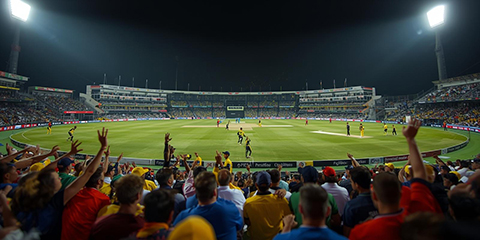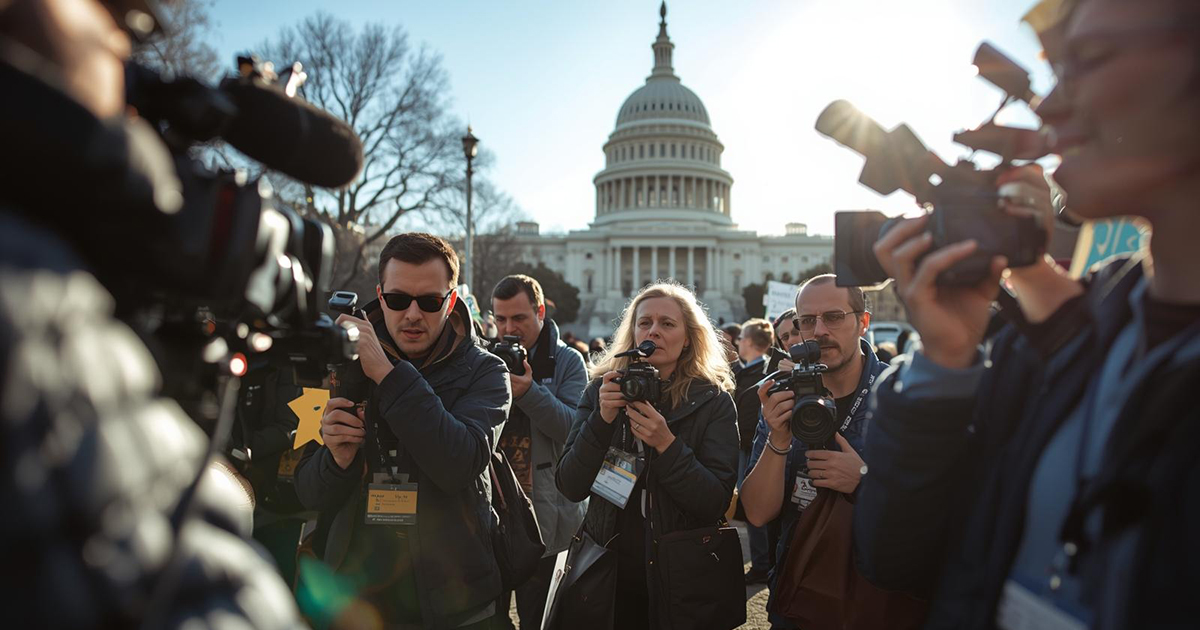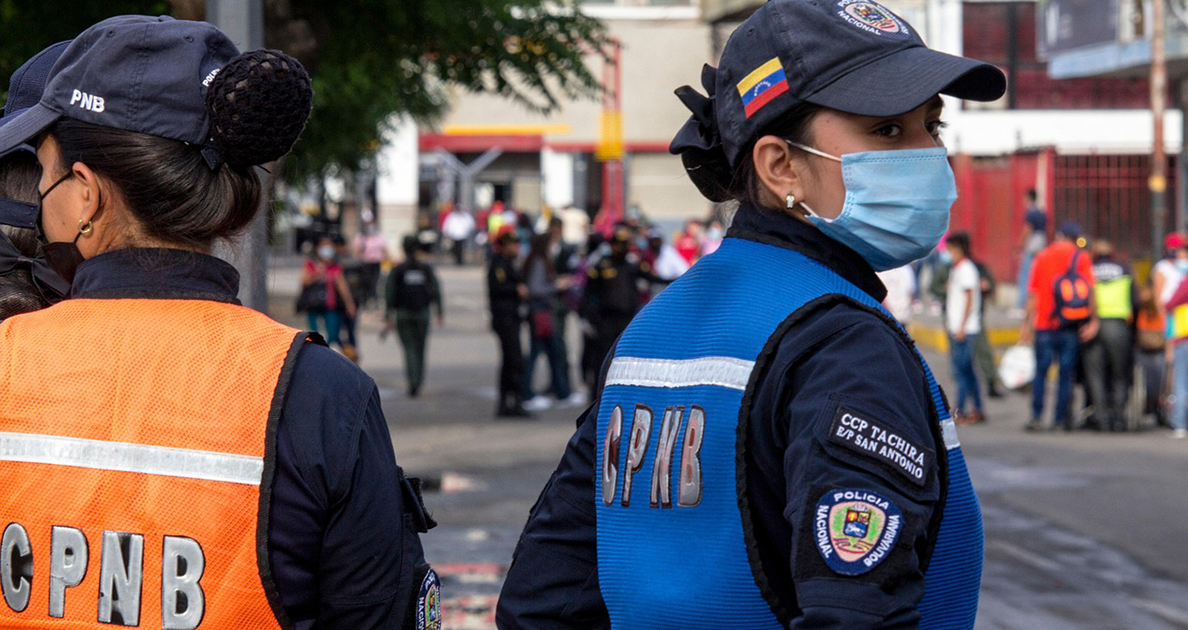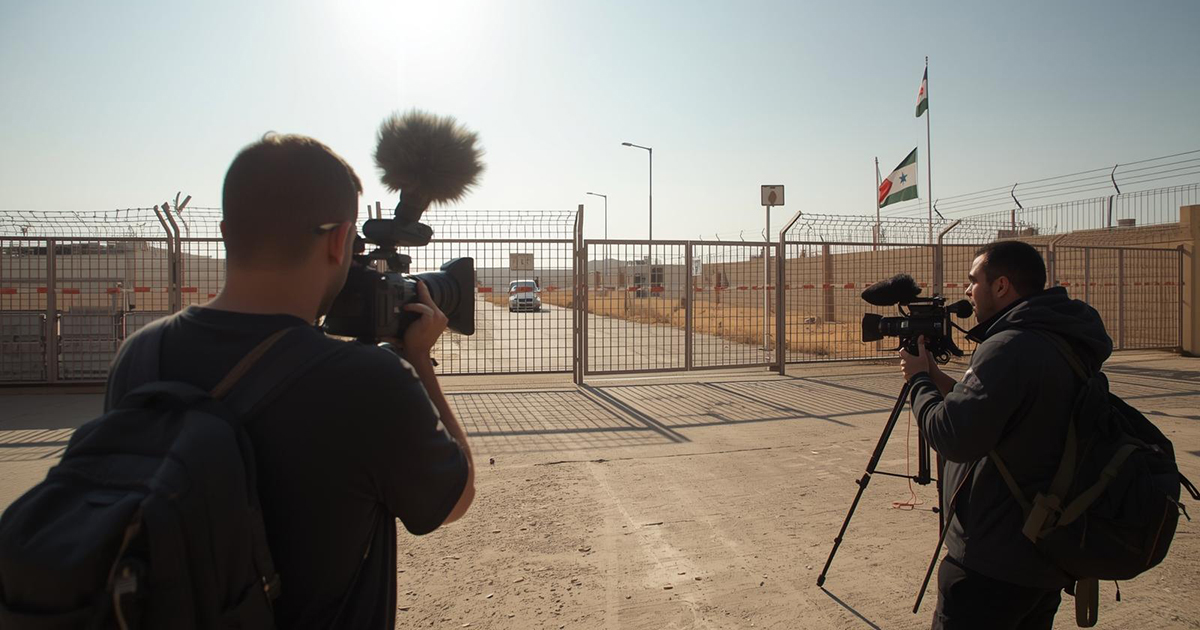From Operation Sindoor fiasco to trophy refusal: Inside India's systematic violation of cricket's sacred codes
JournalismPakistan.com | Published: 1 October 2025 | Dr. Nauman Niaz (TI)
Join our WhatsApp channel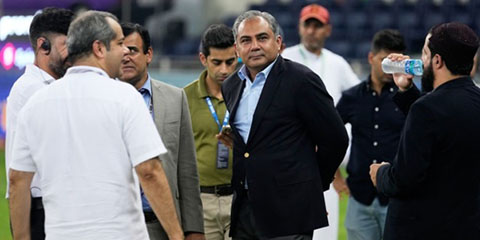
The article examines India's recent violations of cricket's sacred codes, highlighted by events surrounding Operation Sindoor and trophy refusal. India's military rhetoric and on-field conduct are critiqued, alongside Pakistan's measured response and rising geopolitical relevance.Summary
ISLAMABAD — There are times when cricket's ballads are interrupted by the ugly clamour of war drums, when the quiet poise of the game is drowned by the shouting of statesmen drunk on their own delusions. India, intoxicated by its own mythology of grandeur, marched into the theatre of folly with Operation Sindoor, quite a farce, a reckless gambit that claimed the lives of innocent Pakistani civilians under the masquerade of striking "terror camps." The world, however, was not beguiled. Instead, the veil fell, revealing a nation clumsy in its falsehood, embarrassed in the harsh glare of global opinion, reduced to insisting upon fictions that no tribunal of truth could endorse.
Pakistan's Military Response Silences India's Regional Power Claims
On that fateful 10th of May, when Pakistan answered back with the unflinching precision of its armed forces, the world saw what India dared not admit: six, some say eight, of its aircraft plummeting ignominiously into the earth and sky, silencing forever the thunderous boasts of an "emerging regional power." The response was surgical, not in India's bombast, but in Pakistan's rebuttal, calm, clinical, and devastatingly effective.
India's tragedy, however, is not its military embarrassment but its narrative bankruptcy. It could neither furnish evidence of its targets nor prove the grotesque fiction it spread after the Palgham attack in Kashmir. The world, in its watchful sobriety, found the Indian tale porous, implausible, and drenched in electioneering theatre. Pakistan's rejoinder, factual and unadorned, was received with credibility where India's was dismissed with raised brows and weary sighs.
BJP's Toxic Mindset: When Cricket Becomes a Weapon of Nationalism
What fuels this cycle is not only policy but the BJP's grotesque mindset, an ideology that feeds on spectacle, hatred, and shameless denial. It is a dramaturgy troupe rehearsing the same worn play: victimhood, chest-thumping, and desperate attempts to bind cricket, war, and diplomacy into one distorted canvas of nationalism. Audaciously, even on the cricket field, this narrative is smuggled in a captain's defiance, a board's compliance, a Prime Minister of India's tweet descending into puerile military metaphor.
India's Graceless Conduct: Refusing Handshakes and Trophy Ceremonies
An unpopular opinion it may be among the cut-price patriots who make such a cacophony in India, but truth, like sunlight, has a habit of breaking through the foghorns of jingoism. The Indian team behaved not as custodians of cricket's noble heritage, but as sulking interlopers, dilapidated in manner, graceless in gesture. They would not shake hands after their first match, as though the simple clasp of palms were too weighty for their pride. And when the hour of triumph came, they turned away from it, refusing to receive the trophy from Mohsin Naqvi, Chairman of the Asian Cricket Council, head of the Pakistan Cricket Board, and Federal Minister of Interior and Narcotics, as if cricket's ceremonial order could be disfigured by their prejudice.
Suryakumar Yadav's Tantrum: When Performance Fails but Theatrics Prevail
For heaven's sake, once you commit to playing, as opposed to boycotting, then behave according to the designated ICC Code of Conduct and Ethics. To do otherwise is to defile not just law but the lyricism of the game itself. The spectacle shrank not the trophy, but the men. It made Suryakumar Yadav look small, very small, almost non-existent. Here is a batsman who has failed outrageously with the very implement that justifies his place, and yet chose tantrum over talent, acting over artistry. His gestures fell flat in the eyes of the educated and pragmatic world, a world of literates who know cricket not as theatre for hatred but as a civilised contest. What remained was not the cricketer's image but the pantomime of a schoolboy sulking.
Broadcasters' Partisan Behaviour Divides Cricket's Ceremony
And what of the broadcasters, those supposed stewards of the spectacle? Their gutlessness and partisan behaviour were laid bare in the final act, where two hosts were split like parochial heralds. Ravi Shastri, true to his stripes, handled the Indians, while Waqar Younis spoke to Salman Ali Agha. Even in ceremony, even in the ritual of words, the division was preserved, the line drawn. It was cricket, not as a unifier but as a theatre of hatred.
Thus, the Indian performance, on and off the field, is stamped not in the glory of runs and wickets, but in the tawdry margins of grievance and theatre. In the Edwardian Age, even after it, cricket was described as "the rhythm of summer." Here, alas, it is reduced to the grating sound of nationalism ill-dressed as sport.
Pakistan's Geopolitical Ascension: From Caricature to Courted Nation
Yet, amid India's bluster, there rises another melody: Pakistan's own ascension. A nation once caricatured as fragile now finds itself courted in the corridors of the Middle East, invited into conversations once reserved for others. The United States, shrewd and futuristic as ever, has begun to restore weight to Islamabad's chair, recognising that Pakistan's geopolitical positioning and strength of its armed forces and diplomacy remain pivotal in a restless region. Pakistan's remains the only nuclear Muslim country in the world.
Thus, as India clangs the cymbals of its illusions, Pakistan composes a quieter, surer score, one of resilience, regional somberness, and the promise of renewed stature. History's word is written with irony: the self-declared victor is revealed as a pretender, while the derided neighbour rises in the esteem of nations. Cricket was once the most elegant of human pastimes, a symphony, played in whites against the realm of green. It was, I say, the proof that civilisation could still find form in leisure. Yet now, the game is shackled by breaches of its own sacred scripture, the ICC's Codes and Articles, neglected in the fever of politics and pride.
India, that vast continent of cricketing passion, has of late been charged with trampling upon the ICC Code of Ethics. These provisions, written not just as law but as guardians of the game's spirit, have been set aside.
The Violations: India's Systematic Breach of ICC Code of Ethics
1. ICC Code of Ethics, Article 2.1.1
"Members shall not engage in any conduct which constitutes discrimination on the grounds of race, religion, politics, or national origin."
Yet the game itself was turned into a stage for political rhetoric, where the opposition were demeaned not as fellow competitors but as political adversaries.
2. ICC Code of Ethics, Article 2.1.2
"Members shall not use cricket to advance political causes or bring the game into disrepute through political interference."
The Prime Minister of India, intervening by public declaration, invoked the metaphor of "Operation Sindoor", intertwining cricket's canvas with military fictions and nationalistic derision of Pakistan.
3. ICC Code of Ethics, Article 3.1
"Participants shall not engage in conduct that demeans, undermines, or is prejudicial to the interests of cricket."
The refusal to accept the trophy from the Chairman of the Asian Cricket Council, a Pakistani, not only demeaned an official of the game but delayed the post-match ceremony by fifty minutes, depriving cricket of its proper conclusion.
4. ICC Code of Conduct, Article 2.3.1
"Players and team officials must at all times conduct themselves in a manner that is consistent with the spirit of the game and shall not act in a manner that may bring the game into disrepute."
To insult the opposition, to delay the crowning of victory, to politicise the spoils, these acts strike directly against the spirit that holds cricket aloft.
5. ICC Code of Ethics for Directors, Article 1.4
"Directors shall not allow conflicts of interest, political pressure, or external influence to undermine the independence of the ICC or its governance."
The Board of Control for Cricket in India (BCCI), by amplifying and propelling its captain's partisan narrative, failed to uphold neutrality.
6. ICC Articles of Association, Article 1.1 (Objects of the ICC)
"To protect the independence of cricket and to ensure the game is free from political interference and remains a sport of integrity."
By permitting political intervention, India and the BCCI transgressed the very objects upon which the ICC was built. The consequence of these acts was not only juridical but lyrical in its sorrow. A match is not only about overs and runs, but also its rituals, the handshake, the medal, the trophy passed across boundaries as symbols of respect. By refusing these gestures, cricket's timeless music was reduced to a discordant silence. What should have been the hymn of cricket's flow became instead the clang of politics. Where we enjoyed "the song of summer," we now hear slogans and delays. Where the crowd once saw players as artists of the square, they are now cast as emissaries of the state. The laws have been broken, yes. But more grievously, the spirit has been lacerated.
ICC Must Act: Cricket's Spirit Hangs in the Balance
Unless the ICC acts, invoking not only its codes but its conscience, cricket will cease to be the gentleman's game and become instead an instrument of sovereign quarrels. And in that moment, the game will have lost what a connoisseur must have cherished: its beauty, its essence, its purity of play.
Cricket, that noble game which for more than a century has stood as the world's most civilised entertainment, has been dragged into ignoble company. What we witnessed was not India, the cricketing nation, heir to Sachin Tendulkar's artistry and Sunil Gavaskar's steadfastness, but India as a partisan project, a BJP cricket team masquerading as a national side. The field, meant to be a sanctuary for cricket, was turned into a pulpit for political dogma, prejudice, and theatre unbecoming of sport.
Trophy Refusal: India's Contempt for ACC Chairman Mohsin Naqvi
Where there should have been grace, there was a gesture, petty, immature, and vindictive. Where there should have been magnanimity in triumph, there was ridicule and disdain, directed not only at Pakistan, the opponent, but at Pakistan the neighbour, and at Mohsin Naqvi, the sitting Chairman of the Asian Cricket Council. By refusing to accept the trophy and the winner's medallion from his hands, India went home not crowned, but diminished, a victor by runs, but a loser in reputation.
It was a visual that reeked of contempt: contempt for the opposition, contempt for the ACC, contempt for the very codes of the ICC which enjoin respect, impartiality, and the preservation of cricket as a realm free of political intrusion. The post-match delay of fifty minutes, the refusal of honours, the gleeful rhetoric from India's political leaders, even the Prime Minister's descent into military metaphors, transformed a sporting triumph into an exercise in nationalist vainglory.
World Witnesses India's Puerility Cloaked in Saffron Rhetoric
And what was the world to make of this? The audience beyond the boundary saw not India the cradle of cricketing passion, but India as a swaggering protagonist in a drama of its own invention, a side willing to demean an office of cricket because it is held by a Pakistani, willing to sacrifice the gentleman's spirit at the altar of populist politics. The image that resounded across the world was not of victory, but of puerility cloaked in saffron rhetoric, a team that ridiculed rather than revered, and in doing so, ridiculed itself. If cricket is to remain cricket, this conduct cannot pass unexamined. The ICC must assert its conscience as well as its codes, lest the game we hold dear dissolve into farce, corrupted by the same toxins that inflame parliaments and election rallies.
PCB and ACC's Strategic Response: What Must Happen Next
Now what must PCB and the ACC do? PCB needs to report the intimidatory, demeaning behaviour and reported sledging with concrete evidence backed by infallible documentation, and the ACC needs to proceed against the BCCI and India team for bringing the game into disrepute. Before they do that, PCB should be mentally prepared; next month's ICC Board Meeting in Dubai may well hold a few surprises for them. Mohsin Naqvi may have rightfully held his ground and, even on repeated requests, has decided not to hand over the Asia Cup trophy to BCCI until the team apologized to him.
BCCI's Counter-Strategy: Political Appointment Question Looms
Nonetheless, in this adamancy, he should also be aware of the astuteness and professionalism of the BCCI. They don't bank on irrelevant, incompetent office holders, and they also do not have sycophants like Naqvi has many in the PCB. There was a statement from the Secretary of the BCCI that they have taken exception to Naqvi's decision not to deliver the trophy and winning medallions and that their board will be taking it to the ICC Board in November. Presumably, as it seems, BCCI wouldn't stir much to justify their ignominious behaviour and having brought the game to disrepute, what they may well be contemplating is to object to Mr. Naqvi simultaneously holding the offices of PCB and Federal Minister for Interior and Narcotics. And according to ICC's Articles of Association, no political influence is acceptable in the appointment of the chair of a full member board, and no political interference is required in its governance.
ICC Code of Ethics: The Legal Framework Against Political Interference
The law-book of cricket's governors, the ICC Code of Ethics, is written with the quiet seriousness of scripture, and in its pages one hears both the tone of old ideals and the stern admonition of duty. Since May 10, 2017, its binding words have held those who guide the game, directors, officers, committee members, and staff, fast to a covenant of loyalty.
In its measured cadences appears Article 2.2.2.3, which tells us that a steward of the game "must not do anything or allow anything to be done that would undermine the duty of care and loyalty" owed to cricket's global temple; he must "not use undue influence, or allow himself to be unduly influenced, by a third party (such as a government or political body)." The Code is watchful, knowing how swiftly the hand of politics may intrude upon the fragile order of sport.
The same music flows through Article 2.2.3, compelling each director to declare entanglements and "disclose matters that may impact decision-making, including side agreements or financial support from one National Cricket Federation to another." Here is recognition that even the appearance of improper influence, born of politics or purse, may corrode trust. The Code defines conflict of interest with a wide net, casting its gaze upon "outside involvement in political organisations" which might suggest shadows over cricket's light.
Yet note: the script is not explicit in forbidding outright a soul "politically recommended" from ascending to office. That exact ban is absent, though the stern spirit of the clauses makes clear how such an intrusion might be judged. If found in breach, the law's consequence is ready at hand. Article 4.1 permits the removal from office of those whose ties compromise integrity. And lest there be doubt of reach, Article 1.2.1 states its dominion stretches over "each person serving as a director … or officer of the ICC … or each person serving as a member of a committee, commission … or any person … interacting with the ICC." Moreover, as Article 6.2 proclaims, "It shall be a condition of membership of the ICC that all National Cricket Federations shall comply with this Code of Ethics." Thus, fidelity is demanded not of a few, but of all.
ICC Articles of Association: Autonomy and Democratic Elections Required
Beyond this Code lies the grander architecture, the Articles of Association, another manuscript of principle. Here, commentators remind us of the revision wrought in 2017: membership was reshaped so that a nation "must at all times manage its affairs autonomously and ensure that there is no government (or other public or quasi-public body) interference in its governance, regulation and/or administration of cricket (including in selection, appointment etc.)." This "contract of participation," austere yet essential, became the rampart against politics' encroachment.
And when nations falter, history records the hammer's fall: Zimbabwe's suspension in 2019, punishment for interference by edict. These were no vague gestures but enforcement of cricket's creed. The Articles themselves speak with unmistakable clarity. In Article 2.4(C), a Member must "ensure that its statutes provide a process for free and democratic elections and appointments … for its executive body," that its guardians come by the ballot of fairness, not by the hand of decree. And in Article 2.4(D) the command is crystalline: a Member must "manage its affairs autonomously and ensure that there is no government (or other public or quasi-public body) interference in its governance, regulation and/or administration of Cricket in its Cricket Playing Country (including in operational matters, in the selection and management of teams, and in the appointment of coaches or support personnel)."
Enforcement Mechanisms: Suspension Powers Under Article 2.10
The continuity of membership rests upon fidelity to these obligations. Article 2.8 insists: "To retain its status as a Full Member, each Full Member must at all times satisfy the obligations set out in Article 2.4 …" Defy this, and the full dignity of membership trembles. Enforcement comes under Article 2.10(A): "The (ICC) Board of Directors may suspend the membership of a Member with immediate effect where, in the opinion of the Board of Directors (in its absolute discretion), the Member is in serious breach of any of its obligations as a Member." And if suspended, the terms shall be as Article 2.10(B) declares: "Any suspension of a Member by the Board of Directors in accordance with Article 2.10(A) shall be subject to such terms and conditions as the Board of Directors may determine." Thus, sanctions may be tailored, stern or tempered, as the occasion demands.
The Membership Criteria, too, though not of the Articles themselves, echo this doctrine, requiring that a cricket federation must be the "primary governing body" of its land and hold its independence intact. In sum, the ethos is plain: politics must not be the master of cricket. Yet, nowhere is there a clause baldly inscribed: "no political appointees." The law relies instead upon interpretation, upon the recognition that a political nominee is but another face of interference, and interference is forbidden.
PCB's Legal Arsenal: Six Strategic Actions Against BCCI
And so, with these instruments at hand, what counsel for the Pakistan Cricket Board? That it move with deliberate solemnity:
1. A Formal Complaint to the ICC under the Code of Ethics and Code of Conduct, citing Articles 2.1.1, 2.1.2, and 3.1 of the Ethics Code, and Article 2.3.1 of the Code of Conduct, gathering evidence of political intrusion and discrimination, and presenting it before the Ethics Officer. Sanctions, ranging from fines to suspensions, even to the loss of hosting rights, may follow.
2. The Asian Cricket Council's recourse, for the dignity of its Chairman and office, under Article 7.3 of its Constitution. It may censure, reprimand, or even recommend suspension from future events, and if need be, escalate to the ICC under Article 1.1 of the Articles of Association, which guards cricket's independence.
3. A demand for a hearing at the ICC Board, summoning the higher governance of cricket to deliberate on breaches of its own Articles. The Ethics Committee may be invoked, with authority to act against members or directors who compromise integrity.
4. Resort to the Court of Arbitration for Sport, should cricket's own tribunals prove weak. CAS rulings bind, compelling nations to account beyond the pavilion gates.
5. A campaign of image and word, to frame the issue not as Pakistan against India, but as cricket's timeless battle against politics. Here, rhetoric must be dignified, careful not to inflame, but to stand as guardian of the game's sanctity.
6. And, above all, restraint from retaliation, keeping the matter within cricket's legal architecture, preserving the higher moral ground.
Thus may the PCB take its stand as complainant, and the Asian Cricket Council as custodian, two voices united not in parochial grievance, but in guardianship of the game's soul. For this trespass is no mere slight upon one nation; it is a wound upon cricket itself, an encroachment upon its independence, an affront to its spirit.
The Diplomatic Challenge: Persuading Cricket's Power Brokers
Alas, too often the PCB has answered with haste and fire, stranded by its own impetuosity. Now is the hour for patience dressed in diplomacy, for suasion and statesmanship. They must persuade a divided cricketing world, ECB, Cricket Australia, New Zealand, South Africa, the West Indies, that though India bestrides the modern game like a colossus, they are not its owner. True, the BCCI contributes the lion's share, seventy-six per cent of the ICC's revenues; they boast the Indian Premier League, a gilded carnival worth twelve billion dollars; they command broadcast rights, production houses, even the very technologies of replay. Their grounds glitter, their teams excel, their coffers overflow. Yet still, they remain but one of twelve Full Members, each holding a solitary vote. Equality, not empire, is the charter of the ICC.
India's ICC Dominance: Power Without Accountability?
It is equally true that India's hand now shapes the ICC's highest offices, Chair, CEO, CFO, heads of Commercial, Events, Communications, all cut from the same cloth. And yet breaches have occurred: transgressions against the Code of Conduct, the Code of Ethics, and even the Articles of Association themselves. For these, the law suggests of penalties severe enough to include suspension or rescission of membership. Yet the cricketing world knows such a day will never arrive.
Court of Arbitration for Sport: The Final Recourse
If justice be denied within cricket's own chambers, then perhaps recourse must be sought at Lausanne, before the International Court of Arbitration for Sport, where the ICC's cloak of politics may not so easily conceal its bias. India may strut in the intoxication of power, its dominance applauded by boards content to follow. Yet let them remember: power corrupts, and absolute power corrupts absolutely. Today, Pakistan is the aggrieved; tomorrow, it may be Australia, England, New Zealand, or South Africa. None is immune. Cricket, held hostage, must not bow forever. India cannot play alone; nor can the IPL, however gilt, supplant the game entire. If the world will not act now, then it never shall again. Yet Pakistan, instead of wielding its diplomacy with guile, too often lets the chance slip.
The Denness Affair 2001: When India First Challenged ICC Authority
History itself records India's readiness to act ruthlessly when challenged. Recall Port Elizabeth, November 2001: Mike Denness, once captain of England, then ICC's arbiter, brought six Indians to book. Sachin Tendulkar damned for brushing a seam, Virender Sehwag reckless in his zeal, Sourav Ganguly negligent of command, Harbhajan Singh, and Deep Dasgupta censured for excessive appeal. Six bans fell like hammer-blows, unprecedented, merciless.
Mike Denness, summoned to explain, stood silent as granite, while Indian reporters seethed, crying hypocrisy: why were Shaun Pollock and Nantie Hayward spared? Ravi Shastri's barb cut the air: "If Mike Denness cannot answer questions, why is he here? We know what he looks like."
Effigies burned in Indian streets; parliament thundered with accusation. The BCCI threatened to quit; South Africa, torn between empire and ally, sided with India. Thus was born absurdity itself: a five-day contest stripped of Test status, Denness excluded from the gates, Denis Lindsay officiating in his stead. The ICC, in embarrassment, called it a "friendly." South Africa claimed the series 1–0. Later came retreat: Tendulkar and Ganguly absolved, Sehwag condemned still. Denness, wounded, never recovered his authority, officiating but briefly before illness overtook him, and cancer silenced his days in 2013.
So the Denness Affair passed into lore: a Test declared "unofficial," a genius unjustly accused, effigies aflame in protest. It was not cricket, but power against perception, another reminder that cricket is no mere pastime, but an empire of emotion, whose spirit, once affronted, cries out for redress.
Monkeygate 2008: Harbhajan Singh and the Sydney Test Scandal
January 2008, Sydney Cricket Ground: the saga repeated in a different key. Andrew Symonds and Harbhajan Singh clashed, words exchanged, and the Australians swore they heard the darkest insult. Ricky Ponting carried the charge; the ICC invoked its anti-racism law. Harbhajan was condemned to a three-Test ban on testimony alone, no proof beyond voices. India's wrath rose. The BCCI, powerful now beyond precedent, threatened to abandon the tour. Umpiring errors compounded the fury, Rahul Dravid, Sourav Ganguly, and Symonds were all undone, and Symonds was reprieved. What began as sledging swelled into diplomacy, and parliaments and chancelleries engaged. The ICC appointed Justice John Hansen. In long hearings, he stripped the case bare: evidence frail, witnesses conflicted.
Racism unproven, Harbhajan acquitted of the vilest charge; yet fined half his fee for coarse language. The tour stumbled on, peace restored in form, though scars endured. The Sydney Test passed into infamy as Monkeygate. Trust between India and Australia bled away. Symonds admitted the ordeal broke him; Harbhajan survived, later reconciled with his accuser in the IPL's mercenary embrace. But the affair unmasked deeper frailties: the ICC's reliance on testimony, its struggle between universal code and cultural nuance, its weakness before India's power. It accelerated the march toward the Decision Review System. Above all, it dragged into light the unhealed wounds of race.
Cricket's Historical Crises: From Bodyline to Apartheid
Yet these were but phases in cricket's greater chronicle of crises. Bodyline in 1932-33, when Douglas Jardine armed Harold Larwood to assault Donald Bradman's body; apartheid, which cast South Africa into exile and denied Peter Pollock, Berry Richards, Mike Procter their stage; Kerry Packer's revolution, match-fixing, Zimbabwe's turmoil. Kenya's disruption. Each time cricket reeled, but endured. Now India bestrides the game, hegemonic, sometimes overbearing. Yet cricket will outlast this, as it outlasted Jardine, Balthazar Vorster, Kerry Packer, Hansie Cronje. For the grandeur of cricket lies not in boards or tribunals, but in its eternal soul: the hush before the bowler runs in, the crack of a cover drive, the roar that rises as spirit, not politics, carries the day.
Bodyline 1932-33: When Cricket Became Warfare
In the early 1930s, cricket faced a torment as political as it was tactical. The problem was one man, Donald Bradman, a run-scoring phenomenon whose blade humbled England by 1930 and rendered bowlers helpless. Conventional length and line became instruments of futility.
Enter Douglas Jardine, Oxford-educated, granite-jawed, and disdainful of colonial sentimentality. He conceived a new stratagem with his spearhead, Harold Larwood. The ball, instead of beckoning the stroke, would assault the body. Around the leg side, a cordon of close fielders lay in wait for the desperate fend. It was called "leg-theory," but history rechristened it with a harsher word: Bodyline.
From Sydney to Melbourne, Adelaide to Brisbane, Perth, Jardine unleashed his doctrine. Larwood and Bill Voce pounded the chests and skulls of Australian batsmen. Helmets did not exist; courage was their only armour. Bradman's genius flickered, but the flame was checked. His average, godlike before, was clipped by mortal hands. Lesser batsmen bore bruises like battle wounds. The crowds howled in outrage. Newspapers thundered: this was not cricket, this was barbarism.
Bodyline was not wholly new; George Hirst toyed with it in 1903–04, Frank Foster in 1911–12. But Jardine, in 1932–33, gave it its ruthless expression. Even within his camp, there was dissent. Iftikhar Ali Khan Pataudi, on debut, scored a hundred and had the temerity to tell his captain, "This is not cricket." Jardine's retort was chilling: "Patso, you'll never play for England again." And he never did. Gubby Allen refused to employ it. Even Larwood, executioner-in-chief, harboured private unease. In January 1933, in Adelaide, tragedy threatened. A thunderbolt from Larwood struck Bill Woodfull on the chest. The next day, another wicketkeeper, Bert Oldfield, fractured his skull. The crowd roared with fury; Australia's Board of Control cabled Lord's, condemning Bodyline as "unsportsmanlike."
The MCC, affronted, replied with hauteur, defending Jardine. What had begun as a cricketing quarrel now trembled into imperial politics. For a fevered moment, the "Bodyline crisis" seemed a fissure in the very unity of Empire. England triumphed 4–1, the Ashes reclaimed. Jardine's tactics succeeded, but at immense reputational cost. Larwood, loyal servant, returned to England lionised by some, demonised by others. He refused to apologise and never played Test cricket again.
In time, the laws changed: leg-side fields restricted, intimidatory bowling curbed. Bradman, phoenix-like, adjusted his art; by 1934, he was once more unassailable. Yet in Australia, Bodyline became a scar, proof that England, when desperate, had betrayed the spirit for the letter. Historians now see it as a clash of philosophies: England's obsession with victory by calculation, Australia's reverence for unwritten codes of fairness. Bodyline was more than tactics; it was cricket's moral crisis. The game discovered that legality and legitimacy are not the same.
Breaking Segregation: Learie Constantine's Stand in 1933
In the year 1933, when the West Indies voyaged to Australia, the team had within its ranks the tension of empire itself. Eleven were black and brilliant; seven were white, scions of colonial privilege. In Sydney, still draped in the austerities of British dominion, came the affront of segregation: the cricketers of different colours were consigned to different lodgings, as though not comrades in one cause but travellers of alien tribes.
It was then that Learie Constantine, craftsman of bat and ball, and also a barrister schooled in justice, raised his voice. With dignity, he refused to let silence serve tyranny. He made the insult an issue, and the wrong was redressed. The hotel doors opened—not merely to house the cricketers together, but to admit, for a moment, the possibility that cricket could transcend the narrowness of the world around it.
Palwankar Baloo: The Untouchable Who Conquered Cricket
Nor should memory neglect the tale of Palwankar Baloo. Born a Dalit, branded "untouchable" by the cruel hierarchies of caste, he was one of the finest slow left-arm bowlers that India, or any land, has ever known. Time and again in the Bombay Quadrangular, he spun webs that ensnared batsmen and delivered victories to the Hindus. And yet, when triumph's hour came, Baloo was cast aside. He was made to eat apart, to drink from separate vessels, to sit outside the pavilion like a stranger to his own conquest.
And still, cricket endured. It absorbed indignity, it carried injustice upon its shoulders, but it lived on. Perhaps that is its secret: cricket, like humanity itself, is flawed in practice, yet radiant in possibility. Even when chained by prejudice, it remains a stage upon which equality forever dreams of its innings.
Apartheid's Expulsion: South Africa's 22-Year Cricket Exile
In 1968, apartheid had hardened: a nation divided by law, with cricket reserved for whites. Black, Coloured, and Indian South Africans were banished from first-class fields. To a decolonising world, India, Pakistan, the West Indies, this was intolerable. The Basil D'Oliveira Affair of 1968 exposed it most cruelly. Basil D'Oliveira, a Cape Coloured, barred from his homeland, found refuge in England and a place in its Test side. When chosen to tour South Africa, Prime Minister John Vorster thundered a refusal. The tour collapsed; the mask of apartheid slipped.
By 1970, South Africa thrashed Australia 4–0, Berry Richards and Peter Pollock sublime, Mike Procter devastating. Yet even as they conquered the field, the world turned its back. The ICC, under pressure from Asia and the West Indies, expelled South Africa. Tours were cancelled. Instead, England staged a "Rest of the World XI" series to fill the void. For two decades, South Africa was isolated. Only "rebel tours" came, cursed and clandestine. A golden generation was lost to exile. Cricket, aligning itself with morality, declared apartheid incompatible with its creed.
Not until 1991, when apartheid collapsed and Nelson Mandela walked free, was South Africa restored, its rebirth symbolised by a tour of India. From Bodyline to apartheid, from Kerry Packer's revolution in 1977–78 to ball tampering, match-fixing, and the political storms of Zimbabwe and Kenya, cricket has staggered through crisis after crisis. Each time it seemed imperilled, yet each time it endured.
Now, India, a powerful and sometimes hegemonic nation, bestrides the game. But cricket has weathered Jardine and Vorster, Kerry Packer and Hansie Cronje. It will weather this too. For the grandeur of cricket lies not in its administrators nor its controversies, but in its eternal essence, the crack of bat, the flight of ball, the hush before applause.
Cricket's Eternal Spirit: A Symphony of Survival
Thus, the Symphony of Cricket's Crises concludes, not in despair but in recognition. For cricket, like life, is most beautiful not because it is perfect, but because it survives imperfection. Its spirit is tested by bodyline, scarred by apartheid, compromised by commerce, shaken by tribunals, but never extinguished. The grandeur of cricket does not dwell in boardrooms or statutes. It lives in its eternal soul: in the lyrics of Donald Bradman's cover drive, the defiance of Frank Worrell's captaincy, the roar of Eden Gardens, the silence before the last ball of a Test. Cricket endures because it mirrors us, our frailty, our conflict, our striving for justice, our hunger for grace. And like humanity, it stumbles, errs, rises again. For in the end, cricket is not just a game. It is a symphony of striving and survival, of crisis and renewal, an empire of emotion, always unfinished, always beginning anew.
Dr. Nauman Niaz is a civil award winner (Tamagha-i-Imtiaz) in Sports Broadcasting & Journalism, and is the sports editor at JournalismPakistan.com. He is a regular cricket correspondent, having covered 54 tours and three ICC World Cups, and having written over 3500 articles. He has authored 15 books and is the official historian of Pakistan Cricket (Fluctuating Fortunes IV Volumes - 2005). His signature show, Game On Hai, has been the highest in ratings and acclaim.
KEY POINTS:
- India violated the ICC Code of Ethics during recent cricket events.
- Political rhetoric has overshadowed the spirit of the game.
- Pakistan's response showcased military precision and credibility.
- The Indian team refused to accept a trophy from a Pakistani official.
- Calls for ICC intervention to uphold cricket's integrity.









